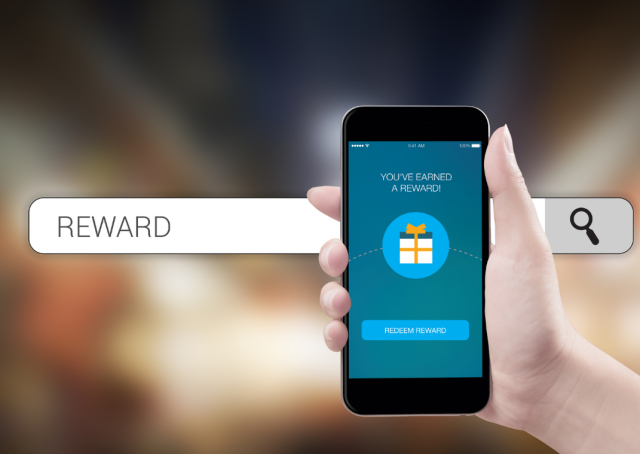By Matthias Naumann, CEO of Companjon
Add-on insurance is the secret weapon to nudge travel customers over the line
While it’s no trade secret that travel and tourism companies have taken a hammering during COVID-19, one of the biggest blows must be the fact that many of the insurance companies – lauded as the ultimate safety net – have managed to do some amazing juggling over the last couple of months. Horror stories of travellers stuck abroad with no hope of refunding their tickets have done liberal rounds across news and social platforms since about June last year, while travel insurance companies have simultaneously ‘innovated’ by launching new insurance packages into the market at eye-bleeding prices to capitalise. This is certainly not helping the case for travel and tourism’s recovery as the industry and its customers grapple with the uncertainty that follows the outbreak of 2nd and 3rd waves, and what exactly travel policies do and do not cover.
But as the old Sun Tzu quote goes “In the midst of chaos, there is also opportunity.” Or put differently, there’s nothing quite like a global pandemic to shake up a business model. At Companjon we believe it’s high time we looked at insurance as a driver for business growth, rather than just a guarantee for ‘when things go wrong.’ More importantly we believe there is huge opportunity, for digitally enabled tourism and travel companies to accelerate their ancillary offerings with unique insurance add-ons so that they can thrive in the present and post-COVID world.
"The travel and tourism world is now engaged in a fierce fight to win through vouchers, flexible booking policies and scrapping of change fees, but one has to consider the long-term sustainability of such measures."
Flexible cancellation: Tighter purse strings and fears of being stranded mean that people are more concerned about protecting their travel investment – even if they’re just travelling domestically. With rules and regulations for travel changing daily, the only way to provide wannabe jet setters with the confidence to book is by giving them the flexibility to change or cancel their hotel or transport booking at no extra cost. The travel and tourism world is now engaged in a fierce fight to win through vouchers, flexible booking policies and scrapping of change fees, but one has to consider the long-term sustainability of such measures. An add-on insurance solution that not only gives travel companies a competitive edge, but that can also take the administrative and financial sweat out of last-minute cancellations, is a logical way to cater to an emerging trend that’s not going away any time soon.
The omnichannel experience: The global pandemic will be remembered as the great accelerator, and its elevation of the omnichannel experience is no exception. Customers today demand a unified experience across multiple touchpoints. In other words, they expect to engage with you on one service channel and have that experience continued on another. Nothing will kill loyalty faster than a gruelling and disjointed process when it comes to disappointments or delays – particularly if the rest of your customer experience is designed to be easy and intuitive. If a customer took out delay cover for instance, insurance technology with proper third-party data can trigger an alert notifying that there will be a delay before the customer knows this.
"..we found that 63% of consumers see ease of receiving instant and automated compensation as most compelling characteristics of add-on insurance. An add-on insurance that becomes seamlessly integrated with your business process and brand is the missing link in an omnichannel travel world."
They are simply notified on their phone in a personalised message by the brand in question and once the delayed event has occurred, a compensation is sent instantly Unlike before, the customer will be looking to engage with brands that bring these benefits and that help turn negative experiences into positive ones. In our latest extensive research involving a large population across Europe, we found that 63% of consumers see ease of receiving instant and automated compensation as most compelling characteristics of add-on insurance.
An add-on insurance solution that becomes seamlessly integrated with your business process and brand is the missing link in an omnichannel travel world.
New and relevant kinds of protection: Beyond the obvious forms of protection in the event of falling sick or getting quarantined, there are also other more intangible trends at play. An emphasis on prevention has seen rising interest in social distancing cover, while a heightened understanding of our impact on the planet strengthens the existing trend towards green travel.
A travel and insurance combo that can not only cater for, but guarantee the ideal customer experience will win against other more traditional options. The two listed above are just basic examples, but as every trend watcher in the travel and tourism space will tell you, hyper-personalised and fully digital experiences are set to become the norm. An insurance partner that can adapt products and pricing to suit your unique offerings becomes not only an extra layer of protection, but a way to strengthen your overall customer value proposition.
"If your insurance provider or in-house team are not generating additional commission-based revenue for you, it’s time to rethink the roles that insurance and customer experience play within your business."
My customers, my commission: Finally, one of the simplest, but most powerful points is that a B2B2C digital insurance model should benefit everyone involved, particularly the travel or tourism partner who owns the major customer relationship. If your insurance provider or in-house team are not generating additional commission-based revenue for you, it’s time to rethink the roles that insurance and customer experience play within your business.
In essence, long days, weeks and months spent indoors during lockdown have only fuelled customer appetite for escapism and new scenery. It really is time to move away from the gloom that has surrounded the travel and tourism industries for the last few months and it’s definitely time to put the tired trope of insurance as a ‘grudge purchase’ to bed for good. In a market heavily navigated by high customer expectations, safety, security and a need for hassle-free digital experiences travel companies that pivot their current offerings and options to better align with new demands could gain considerably – increase revenue, attract new customers and drive conversion for example. Companjon is onboard to help drive the ‘win-win’ revolution.
By Matthias Naumann, CEO of Companjon
Subscribe to updates
Get the latest insights and updates from Companjon.



